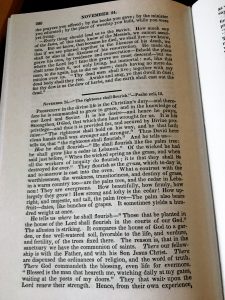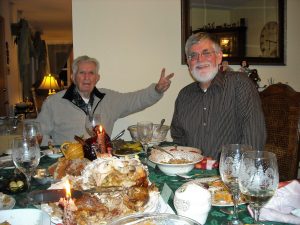 Proverbs 23:12
Proverbs 23:12
Apply your heart to instruction and your ears to words of knowledge (NIV).
The Proverbs are wisdom literature; they provide us with God’s ideas and viewpoints about life in this world. The purpose is that we may gain skill for godly living. They are necessary to equip us for every good work (cf. 2 Timothy 3:16-170. I encourage everyone to read Proverbs. Sharon and I use Proverbs in mentoring couples about their marriage and family. I suggest that you read the introduction to Proverbs in a good study Bible (for example, ESV Study Bible, NIV Zondervan Study Bible) before you do an in depth reading. This will help you avoid errors in interpretation. (Probably someday I should write an article about Study Bibles. They can be useful, or useless, and some can be harmful. If you have questions, please contact me.)
Many beneficial activities are not easy. Saving money requires a plan, discipline, and self-denial. Getting or staying in physical condition requires a plan, discipline, and self-denial. So does a walk with the Lord. He calls us to follow him in the path of godliness. Certainly, the plan includes an understanding of your identity in Christ, the work of the Spirit of God, and active dependence on our Lord and Savior. To grow in grace (2 Peter 3:18) also requires discipline and self-denial.
The above proverb provides us with counsel about discipline for growth. It follows a form of many proverbs where the second part restates the first with variation to deepen our understanding. Here it does it by way of contrast between in inner (“heart”) and outer (“ears”) of our being. What can we gain from this?
- Becoming wise is not easy. We must apply our hearts to instruction. Remember that sinful actions come from the heart (Mark 7:21-23). For this reason, we must take charge of our hearts. To do this we need the help of the Holy Spirit, whose fruit is self-control (Galatians 5:23). The sin in our hearts will crave foolishness, so we must put foolish desires to death and direct our inner persons toward godly wisdom. This can feel like part of you is dying; for example, your lust for laziness or to gossip about others. Go ahead; by the Spirit put it to death (Romans 8:13).
- We need instruction to become wise. We need what is called a “teachable spirit” or attitude. This involves humility, because we have to admit to ourselves and to others that we need instruction. As the Proverbs make clear, pride is not the path of wisdom. The Lord has given us teachers in the church, so that we might do the work of the ministry (Ephesians 4:11-12). And teachers need to receive instruction. Before I can teach, I must receive instruction from the Word and from other godly teachers.
- The development of wisdom necessitates our whole being. We must apply our ears to words of knowledge. Those who desire to be wise will devote substantial parts of their time to listening to the truth, whether by reading it, by listening to it taught, or by discussing it with believing friends. Growth in wisdom involves sharing your life with other followers of the Lord.
I repeat: This is not an easy process. But it is very beneficial. By way of testimony, I enjoy hearing what the Spirit is teaching others from the Word for their lives. It encourages me; yes, it challenges me to live godly in Christ Jesus. It is good to walk out from a group of brothers and sisters and to be able to say, “My ears and my heart were instructed today by those who love the Lord and me!” May you know this experience!
Grace and peace, David

 Psalm 115:1
Psalm 115:1 Psalm 146:1-10
Psalm 146:1-10 Happy Thanksgiving!!!
Happy Thanksgiving!!! 3 John
3 John Genesis 26:12-16
Genesis 26:12-16 Third John
Third John Psalm 55:22
Psalm 55:22 Psalm 55:22
Psalm 55:22 Luke 17:31-37
Luke 17:31-37